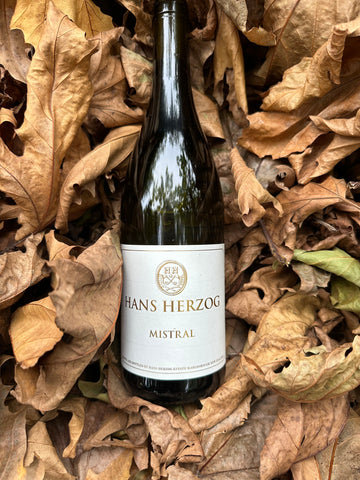
Hans and Therese’s love story began as a wet affair. Not because of wine but water. Therese was learning to navigate a windsurfing board and Hans helped his mate out as windsurfing instructor that weekend. Being a winemaker, he was obviously well qualified for a liquid environment. The few times Therese managed to surface were enough for the two to fall in love. Windsurfing became a big part of their life during their first decade of their relationship. They would often travel to the French Riviera to surf the Mediterranean coastline. Sometimes struggling with the powerful wind from the northwest, known as “Mistral”, which funneled down the Rhone Valley and reaching speeds of 185 km/h. Hans feared a few times to lose his sweetheart to the other side of the Mediterranean Sea towards Northern Africa, watching her combat the monstrous winds with all her mighty to get back to land. Having battled the fierce Mistral wind, they finally found refuge in a cosy nook, with a glass of the famous white wines from the sun-drenched vineyards of southern France. The rich, full-bodied liquid dancing in the glass, illuminating the evening with its warm, golden hue.
Unsurprising, they felt in love with these wines and their grape varieties, the exotic Viognier and aromatic Marsanne and Roussanne. Sadly, the Swiss climate wasn’t suitable for growing these varieties in their vineyards.
A few years down the memory line, Hans tried to convince Therese to buy land in Marlborough. Her first question, can we grow Viognier? With a promise to fulfil, Hans pioneered Viognier in the mid-90ties, trusting the ideal sandy, gravelly soils on the banks of the Wairau River and the extraordinary maritime climate with its cool nights, perfect for the grape variety. A success story reaching back to France when famous wine critic Michel Bettane included the Herzog Viognier in his encyclopedia “The greatest wines of the world”. Hans, ever the trendsetter, then also planted the other two famous white grape varieties from the Rhone Valley – Marsanne and Roussanne.
All three grape varieties are finicky, with unpredictable yields and prone to diseases in a humid climate. If picked without physiological ripeness, the grapes fail to develop the full extent of its aromas. In warm climates they tend to get overripe, producing wines that are oily and lack perfume. Regrettably, many Viogniers are acidified during the winemaking process, not something Hans would do. He relies on his carefully chosen terroir and one of the world’s most perfect climates for these grape varieties to achieve an unparalleled quality through extremely low yields and extensive vineyard work.
The three grape varieties are blended into a perfect marriage. With each sip, transporting the drinker to the rolling hills of the Rhône Valley and vineyards basking in the warm sun, protected by the Mistral wind.
It's as if this wine was made with the essence of the land and the love of its people, bottled up and name “Mistral’ to enjoy this wonderful wine to the gentle hum of the wind outside. We are filled with a sense of gratitude for this bottle of wine. It is a true testament to the beauty and resilience of the human spirit, and a reminder that even amidst the challenges of life, there are moments of joy and beauty to be found.
So here's to the heady Mistral, for reminding us of our strength, and to a wonderful wine from Marlborough, for bringing us a moment of peace and delight.
Cheers!
